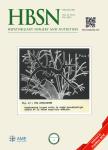Challenges and prospects in prediction and treatment for hepatocellular carcinoma with microvascular invasion
作者机构:Division of GastroenterologyDepartment of MedicineKurume University School of MedicineKurumeJapan
出 版 物:《Hepatobiliary Surgery and Nutrition》 (肝胆外科与营养(英文))
年 卷 期:2019年第8卷第6期
页 面:651-654页
核心收录:
学科分类:1002[医学-临床医学] 100214[医学-肿瘤学] 10[医学]
基 金:supported by AMED under Grant Number JP19fk0210040
主 题:vitamin diagnosis treatment
摘 要:Microvascular invasion(MVI)is an independent risk factor for early recurrence of hepatocellular carcinoma(HCC)after local treatment as well as poor prognosis in patients with HCC(1-3).MVI is an important factor for management of patients with HCC;however,MVI is based on a histopathological diagnosis using resected surgical specimens and is thus difficult to determine ***,Lee et *** a new MVI risk score using the following 4 non-histological parameters:(I)alpha-fetoprotein(AFP);(II)protein induced by vitamin K absence-II(PIVKA-II);(III)arterial peritumoral enhancement on hepatobiliary phase of magnetic resonance imaging(MRI);(IV)peritumoral hypointensity on hepatobiliary phase of MRI(4).They also reported that,in HCC patients with MVI,the HCC recurrence rate was lower in patients treated with hepatic resection than with radiofrequency ablation(RFA)and proposed that patients with HCC who were at high risk of MVI should be treated with hepatic resection rather than RFA(4).This editorial summarizes the recent progress of the prediction method for MVI and discusses the therapeutic strategy for small HCC with MVI.



